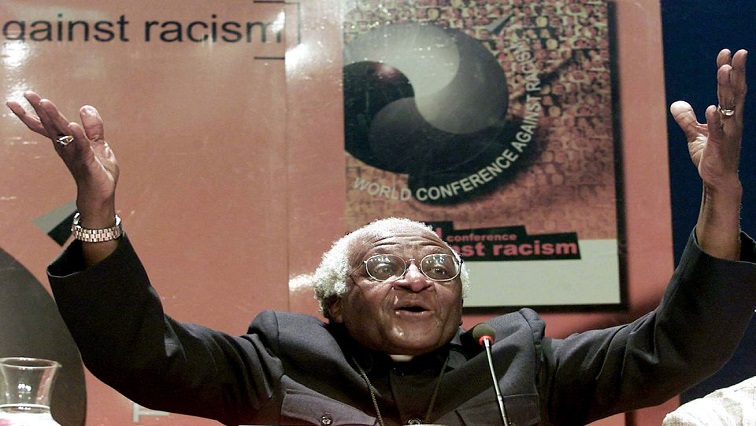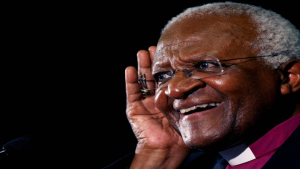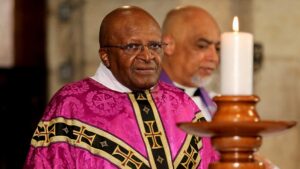Global peace and anti-apartheid struggle cleric and icon, Archbishop Emeritus Desmond Tutu has died in Cape Town at the age of 90.
A lifelong human rights and social justice champion.
Desmond Mpilo Tutu lived and preached the values of justice, forgiveness and equality.
“I believe we have the capacity to be one of the most wonderful countries in the world. We could be a truly compassionate country where everyone was cared for, where no one went to bed hungry, where everyone mattered, and knew they mattered whether they were poor or uneducated, they would matter because they created in the image of God.”
Biography
Tutu was born in Klerksdorp on the 7th of October 1931 to parents Zacahriah Tutu and Aletta Mathlare.
Baptised as Methodist, the family became Anglicans in 1943.
At the age of 12, his family and other residents were removed to areas such as Kanana and Jouberton under the Group Areas Act.
He completed his Senior Certificate in 1950 and later enrolled at the Pretoria Bantu Normal College to study Education.
He continued his studies and completed a Bachelor’s degree from the University of South Africa in 1954.
Tutu quit as a teacher in protest of the implementation of the Bantu Education Act.
He left South Africa to further his theological studies in London in 1962 and obtained his Master’s of Theology degree from King’s College.
Years of service
Tutu became the first Black Anglican Dean of Johannesburg.
He was consecrated as Bishop on the 11th of July 1976 – in the wake of the Soweto student uprising.
In 1978, Tutu was appointed as the general secretary of the South African Council of Churches.
Under his leadership, the church in South Africa became immersed in the anti-apartheid political struggle.
Tutu constantly told the apartheid government that its racist approach defied the will of God.
Upon meeting P.W.Botha, South Africa’s prime minister under the apartheid regime, Tutu said: “We have had a good meeting, yes, and I’m not going to say a great deal more than that, but it was a meeting.”
Some accolades
Tutu was awarded the Nobel Peace Prize in 1984 for his untiring efforts in working towards the end of White minority rule .
The first Black Anglican Bishop of Johannesburg and Cape Town, Tutu was appointed as the Chancellor of the University of the Western Cape in 1988.
He chaired the Truth and Reconcilation Commission following the first democratic elections in 1994, and retired from the church in 1996.
He was made emeritus Archbishop of Cape Town, an unusual honorary title in the Anglican Church.
“When we forget the past, we are going to forget the price that was paid for the freedom that we enjoy today. You have to remember so that you don’t repeat and it is so easy, human beings have very short memories. Yesterday’s oppressed, easily become today’s oppressors.”
Desmond Tutu passes away:
In 1997, Tutu was diagnosed with prostate cancer.
A decade later he became a founding member and chairperson of The Elders – an independent group of global leaders working together for peace, justice and human rights.
He officially retired from public life in October 2010.
“I will always stand up against injustice. Whoever is a perpetrator they must know that as long as I have breath in my body, I will speak up against injustice,” said Tutu.
Dubbing post-apartheid South Africa as the “Rainbow Nation”, Tutu remained a vociferous international human rights activist and was widely regarded as South Africa’s moral conscience.






